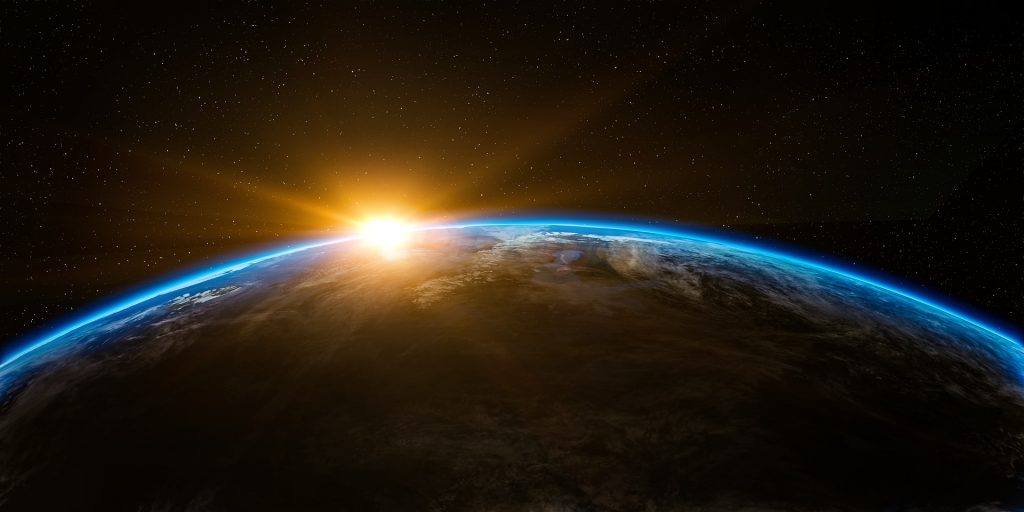 When building a world, one of the first things you will determine is exactly what that world is. It’s the biggest decision you’ll make and may already be determined in advance by your genre or plot. If however, you have a blank canvas, there are various alternatives to consider:
When building a world, one of the first things you will determine is exactly what that world is. It’s the biggest decision you’ll make and may already be determined in advance by your genre or plot. If however, you have a blank canvas, there are various alternatives to consider:
A novel set on planet Earth as we know it may require minimal worldbuilding. If you choose to set the novel in your home town or area, then you probably know the setting well already, or will need to do minimal research. If you are creating fictional towns in a real-world setting, you can probably base them on places you already know. The further afield you go from places you have either lived in or visited, the more research you will need to do. However, if you are writing fantasy, then the accuracy of the locations is entirely up to you. You may choose to emulate the real world completely, or just use aspects of it as a basis for your novel. Real world research may be key to your planning, rather than imagination. If you intend to portray an accurate representation of a place you are not familiar with, you may need to make some travel plans!
If your setting is Earth but from a past time period (and this will apply to historical fiction writers as well as fantasy writers) then you will of course not be able to do research in person. If you wish to emulate a historical period and the accuracy doesn’t concern you, then the Internet and books may well provide all the information you need.
If you choose to write an accurate historical fiction or fantasy, then you may need to delve deeper into your research. Archives, libraries, diaries, speaking to descendants of those who lived or looking at historical records may form part of your research.
Alternative Earth
Alt-history is a branch of Fantasy that takes historical events on Earth and changes them, following up with what happened next as a result. So initially, you would need to research the general historical period and events, following which you need to decide how you are reconstructing your history. Does one small change in circumstances or action mean the path of history completely diverges from the real world? Novels on this basis are commenced by saying “What if x hadn’t done this, but had done y instead.” Does a historical event have a different cause, such as magic or a particular hidden race of Fantasy creatures? One example of this is Scott Westerfelds’ Leviathan series. The books are based around the first World War, but they take certain liberties with the facts and involve the use of alternative scientific and technological advances. Alt-history is imaginative but requires research for a starting point.
Creating your own world is both easier and harder. You have a clean slate to start from and no restrictions. No one can say in your fantasy world, you can’t do such and such, because the entire world is a product of your imagination. However, it’s important to remember that creating a believable world means that you have to follow the principle of internal consistency, and you should have explanations for why events, features, races etc. exist or take particular actions.
You may find that the easiest way to create a fantasy world is to base countries on real world countries or cultures, selecting the aspects you wish and putting your own twist on them. You will also find that your world is more immersive if you follow general laws of climate, physics and behaviour patterns. If your entire novel is explaining your world, you will lose people. The setting should be an enhancement and a background to the character and the plot – not a substitute for them.
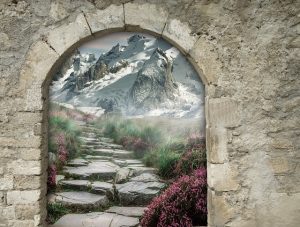 Portal/Multiple Worlds
Portal/Multiple Worlds
You may wish to use multiple worlds. The most common, and probably the easiest way to do this is to have either a wainscot world or a portal fantasy.
In a wainscot world, another society exists within the real world, yet hidden from the real world. Harry Potter would be an example of this, as would classic children’s novel The Borrowers.
Portal worlds involve crossing through a gate or doorway from the real world to the fantasy world. Narnia is a classic example of portal fantasy.
Another way to have different worlds is to have a series of other realms that make up the world as a whole. An example of this would be Rick Riordan’s Magnus Chase series which uses the nine Norse worlds as a basis for the fantasy world, one of which is Earth (Midgard). Some of the worlds are passed through briefly, and because the Norse association is there, the reader already has certain expectations about these worlds which cuts down on the worldbuilding.
Creating multiple fantasy worlds in other dimensions or parallel dimensions is another option. One example of this would be the Chrestomanci series, by Diana Wynne Jones, which has various books set in a multiverse of parallel universes. These worlds split from each other at the time of various important historical events–an event would have different outcomes in each world.
Often, a fantasy writer will choose not to focus on more than two or three worlds in detail, or may refer to others in passing. As worlds increase, so does complexity. I would not suggest creating ten linked worlds simply because it seems like a good idea. If your worlds don’t have a purpose in the plot, you are likely to tie yourself and your readers in knots!
So… what kind of planet are you on? Let me know in the comments.


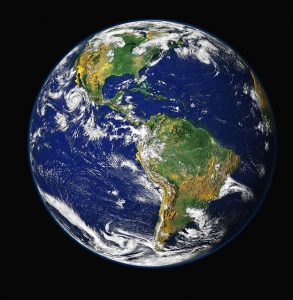
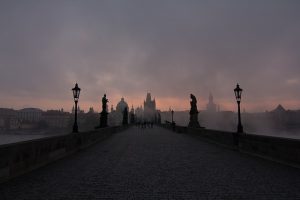
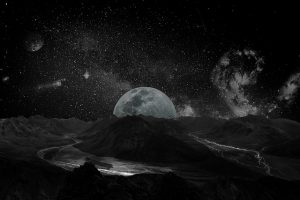
I’m writing a series set in medieval Europe, but I’m taking a TON of liberties with setting, politics, etc, to the point that I’m calling it fantasy and not historical. I’d like to say I’m not being accurate because that’s what I need to tell the story, but a big part of it is that I don’t want to do all the necessary research. 😉
I will admit that’s part of the reason I ended up writing fantasy – you can make stuff up rather than doing tons of research 🙂
Thanks for this, I didn’t even know I needed it!
I’m working on a vampire novel, and their society is secret and parallel, but I hadn’t thought of it as a “world”.
Thinking of it in this context really helps.